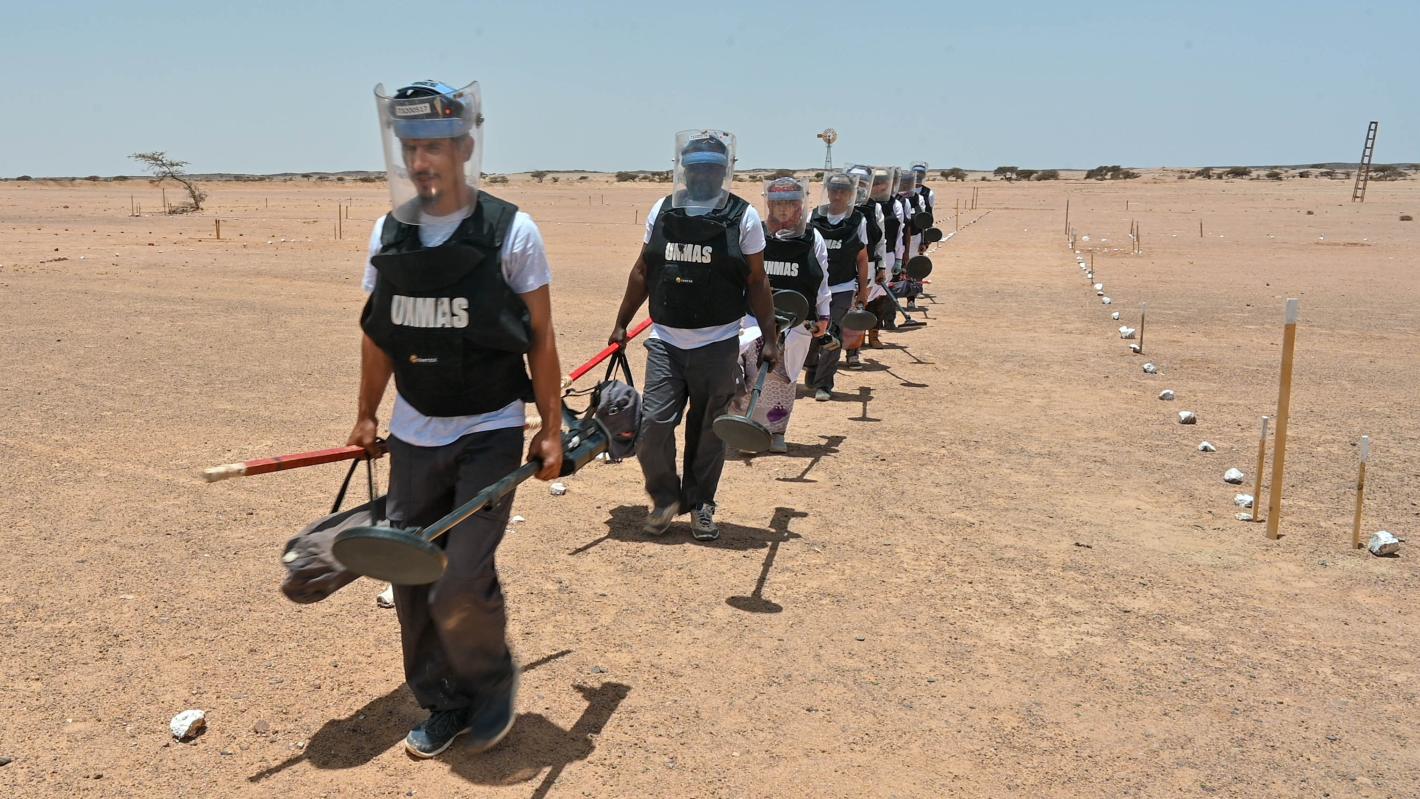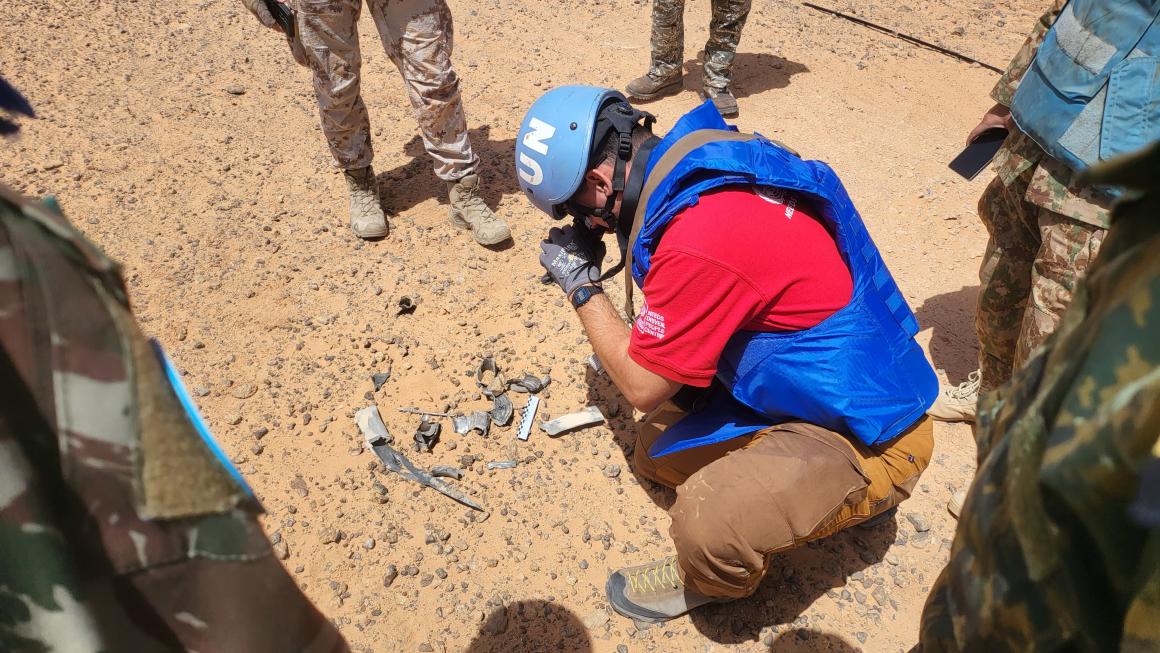
Since its establishment in 2008, the UN Mine Action Service (UNMAS) has achieved the following in the Territory of Western Sahara:1
More than 84 million square meters of hazardous areas are released and/or cleared. 42 of 66 known minefields and 505 of 540 known cluster strike areas were released in the Territory of Western Sahara, east of the berm;
43,610 km of routes verified or assessed as safe from explosive ordnance for UN military observers’ patrols;
694 landmines removed and destroyed;
22,183 Explosive Ordnance (EO) destroyed;
2,139 MINURSO personnel received Explosive Ordnance Awareness briefings.
54,006 local and nomadic people received risk education (RE);
48 survivors of landmines and EO accidents and 400 of their dependents received victim assistance. Over 1,000 mine victims have been recorded east of the berm.
About
Due to the armed conflict from 1975 until 1991 between the Royal Moroccan Army and the Frente POLISARIO, both sides of more than 1,465 km (out of 2,700 km) berm dividing the Territory of Western Sahara, remain significantly contaminated with landmines and EO. These explosive hazards continue to endanger the lives of local nomads, hamper daily activities of rural civilian population, and threaten the wellbeing of the livestock on which they are dependent. In addition, they endanger the lives of United Nations Military Observers working in the Territory.
UNMAS operates as a component of the United Nations Mission for the Referendum in Western Sahara (MINURSO). Operating from the MINURSO Headquarters in Laayoune (Western Sahara) and the MINURSO Liaison Office in Tindouf (Algeria), UNMAS serves as the United Nations focal point for mine action-related activities within the MINURSO area of operations. Thanks to funding from donors, UNMAS has reduced the threat posed by landmines and EO by conducting mine clearance, stockpile destructions, Explosive Ordnance Risk Education (EORE), and capacity enhancement, while providing assistance to survivors of mine/EO accidents.

Activities
Activities under the MINURSO Assessed Budget
Since 2008, UNMAS has played a critical role in facilitating MINURSO’s mandate. By clearing minefields and cluster munition strike areas, as well as conducting route verification, UNMAS successfully enables safe passage for MINURSO military observers and for local and nomadic populations in the region. In addition, UNMAS also delivers EO awareness briefings to MINURSO military and civilian personnel, contributing to safer conduct of peacekeeping operations. In line with UN gender strategies and the Sustainable Development Goals, UNMAS continues to encourage gender equality in mine action and peace operations. As such, UNMAS is proud to work with, inter alia, an all-women demining team, as part of its operations east of berm.
Activities under the Voluntary Trust Fund
Through the generous contributions from donors, UNMAS supports the local Sahrawi Mine Action Coordination Office (SMACO) with the management of mine action-related interventions east of the berm, progressively increasing the capacity to independently plan and coordinate activities in accordance with International and Local Mine Action Standards (I/LMAS).
Funding
UNMAS operations in the Territory of Western Sahara are funded primarily by the United Nations peacekeeping budget (est. USD 3 million annually). In recent years, the Governments of Spain, Germany, Denmark, and Switzerland supported UNMAS in its efforts to enhance the capacity of SMACO.
Currently, UNMAS seeks an additional USD 3.5 million to clear all known landmine/EO contamination in the Territory of Western Sahara, east of the berm (excluding the buffer zone). Funding is also sought to support Victim Assistance, Explosive Ordnance Risk Education and the provide the necessary technical assistance for capacity enhancement of the local mine action authority to become an independent, self-sustaining structure managing and facilitating mine action activities.
Please click here to learn more on the United Nations Mine Action Service website: https://www.unmas.org/en/programmes/westernsahara

